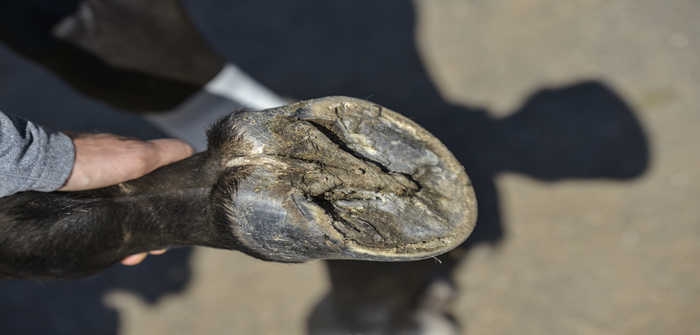A new review ‘Paradigm shifts in understanding equine laminitis’ published in The Veterinary Journal, demonstrates how University of Liverpool-led research has changed the way we think about a crippling disease of horses.
Laminitis is one of the most serious diseases of horses, ponies and donkeys. It is a painful condition of the tissues (lamellae) that bond the hoof wall to the pedal (coffin) bone in the horses hoof. Severe and recurring cases of laminitis can cause chronic painful lameness or result in the horse being destroyed to prevent further suffering.
For the past decade, researchers, led by Professor Cathy McGowan from the University’s Department of Equine Clinical Science and Institute of Aging and Chronic Disease, have systematically investigated laminitis caused by hormonal dysregulation, endocrine laminitis.
She led ground-breaking research that showed laminitis was directly caused by insulin, an important hormone involved in dietary glucose (from carbohydrates) control, which overturned previous held theories of laminitis.
This new knowledge has now paved the way for improving the veterinary industry’s understanding of this terrible disease, and improving future research and treatment.
Professor McGowan said: “These findings completely change the way we think about a very important disease in horses. This is very important to the equine industry and veterinary profession and will be the basis of future research directions.”


